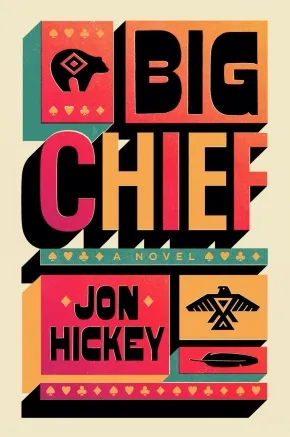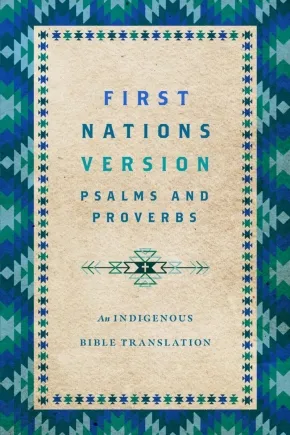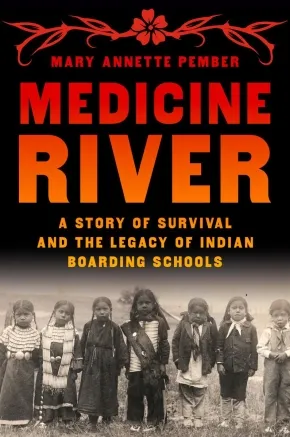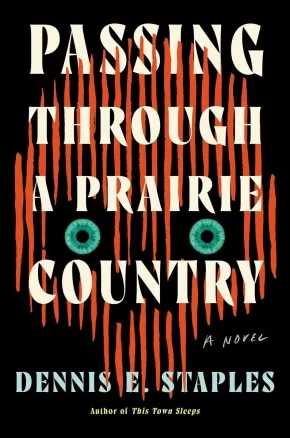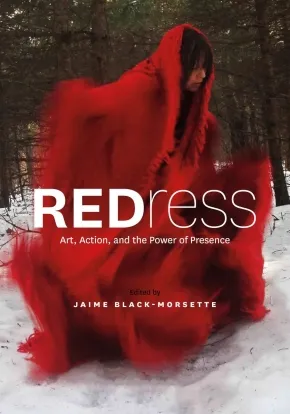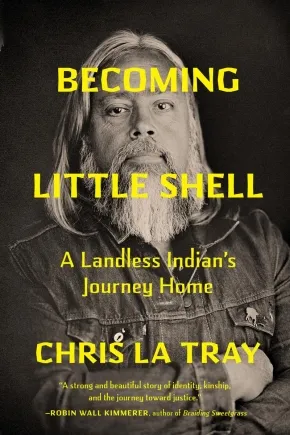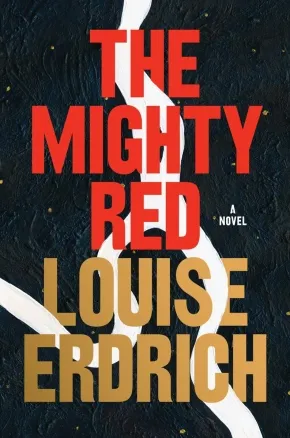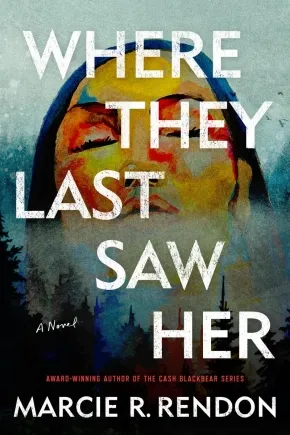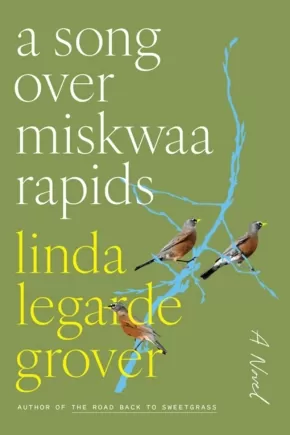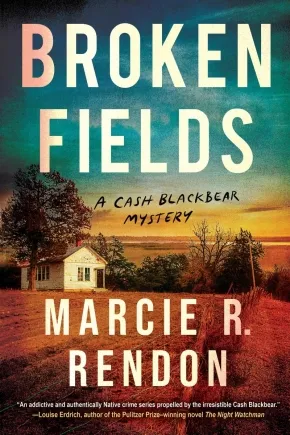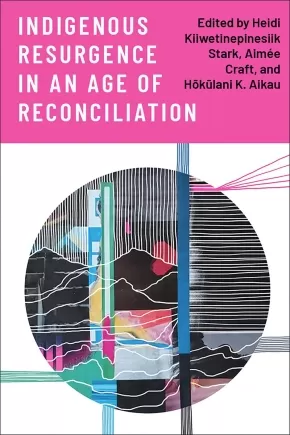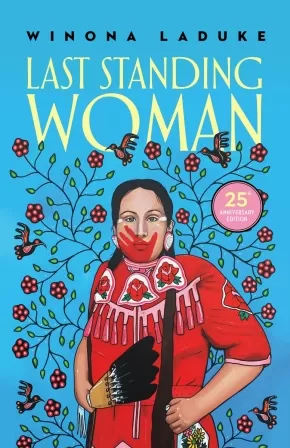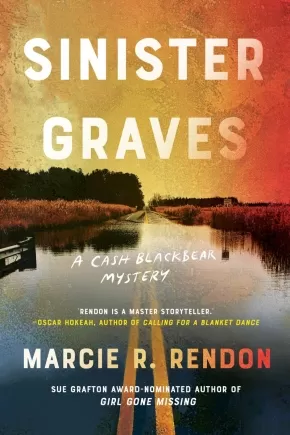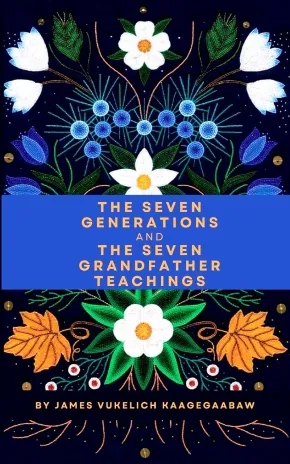
Ojibwe (Chippewa)
1
-
15
of
39 Results;
Sort By
Go To
of 3
Big Chief: A Novel
$34.00
Format:
Hardcover
Text Content Territories:
Indigenous Canadian; First Nations; Anishinaabeg;
Reading Level: N/A
ISBN / Barcode: 9780771015496
Synopsis:
Synopsis:
There There meets The Night Watchman in this gripping literary debut about power and corruption, family, and facing the ghosts of the past.
Mitch Caddo, a young law school graduate and aspiring political fixer, is an outsider in the homeland of his Anishinaabe ancestors. But alongside his childhood friend, Tribal President Mack Beck, he runs the government of the Passage Rouge Nation, and with it, the tribe’s Golden Eagle Casino and Hotel. On the eve of Mack’s reelection, their tenuous grip on power is threatened by a nationally known activist and politician, Gloria Hawkins, and her young aide, Layla Beck, none other than Mack’s estranged sister and Mitch’s former love. In their struggle for control over Passage Rouge, the campaigns resort to bare-knuckle political gamesmanship, testing the limits of how far they will go—and what they will sacrifice—to win it all.
But when an accident claims the life of Mitch’s mentor, a power broker in the reservation’s political scene, the election slides into chaos and pits Mitch against the only family he has. As relationships strain to their breaking points and a peaceful protest threatens to become an all-consuming riot, Mitch and Layla must work together to stop the reservation’s descent into violence.
Thrilling and timely, Big Chief is an unforgettable story about the search for belonging—to an ancestral and spiritual home, to a family, and to a sovereign people at a moment of great historical importance.
Reviews
“A compelling and strong Native American novel about politics and power and how far some people will go to hold on to what they have.”—Brandon Hobson, author of National Book Award finalist Where the Dead Sit Talking
"Deliciously ruthless and absolutely huge, Big Chief unleashes the Shakespearean realities of Passage Rouge with seismic ambition and brilliance. Prepare to relish every dice roll, partisan jab, and monkey wrench thrown in this all-out showdown from maestro Jon Hickey—a colossal novel of and for our time." —Cody Caetano, author of Half-Bads in White Regalia
"Jon Hickey throws the reader in the backseat of a tricked out F350 and takes them for a wild ride across the Rez following a J. Crew NDN, a Chief who's in over his head, and their crew. This is a must read as Hickey brings us into the chaos and catastrophes that the colonial imposed electoral system creates in Indigenous communities but also shows the reader how community, a sense of belonging, and family is what really matters in the end. This is a book that you won't put down until the last ballot is counted."—Conor Kerr, author of Prairie Edge
“Taut, timely, and brimming with suspense, Big Chief questions our notions of power and morality, holding a mirror to our crooked, calculating world. This is a monumental debut."—Kirstin Chen, New York Times bestselling author of Counterfeit
“Big Chief features all the twisty chessmanship—the familial feuds, the financial games, the political maneuvering—of Succession and sets it against the backdrop of Indian country. Jon Hickey has written one hell of an addictive and important debut novel.”—Benjamin Percy, author of The Ninth Metal and Red Moon
Additional Information
320 pages | 5.50" x 8.25" | Hardcover
First Nations Version Psalms and Proverbs: An Indigenous Bible Translation
$26.99
Format:
Paperback
Text Content Territories:
Indigenous American; Native American;
Reading Level: N/A
ISBN / Barcode: 9781514007273
Synopsis:
Synopsis:
Discover the rich tapestry of human emotion and divine wisdom with the First Nations Version Psalms and Proverbs. The latest volume from the critically acclaimed First Nations Version translation brings the ancient Sacred Songs and Wise Sayings of the Hebrew Scriptures to life through the vibrant, poetic imagery of Native American oral storytelling.
Discover Psalms and Proverbs Reimagined Through the Poetic Language of Native Storytellers:
Father Sky is telling us the story of the shining-greatness of the One Above Us All. The starry tent above us shows the beauty that Creator’s hands have made. Day after day, the story is told, and night after night, their wisdom fills the sky. Even though the skies above have no spoken words, all creation has heard their message.Psalm 19:1-3
From the strength of your heart, put all your trust in Grandfather, and do not hold yourself up with weak human thinking. As you walk the road of life, make every step a prayer. Grandfather will then make your eyes straight and your paths safe.Proverbs 3:5-6
Whether you're seeking solace, strength, or spiritual insight, the First Nations Version Psalms and Proverbs will guide you with its profound expressions of praise and trust in the Creator. Step into the harmonious blend of ancient wisdom and indigenous tradition to discover a spiritual experience that speaks directly to your heart.
Reviews
"The First Nations Version is far and away the most creative Bible translation I've ever read. It's an exciting alternative to the boring, stodgy renderings that have dominated the English market for centuries. All readers can open the FNV and experience old passages in new lights. Talk about it with your kids. Study it in churches and classrooms. Use it in worship. The Bible becomes alive!"— Matthew Schlimm, professor of Old Testament at the University of Dubuque Theological Seminary
Additional Information
192 pages | 6.00" x 9.00" | Paperback
Medicine River: A Story of Survival and the Legacy of Indian Boarding Schools
$39.00
Format:
Hardcover
Text Content Territories:
Indigenous American; Native American; Anishinaabeg; Ojibwe (Chippewa); Red Cliff Band of Lake Superior Chippewa;
ISBN / Barcode: 9780553387315
Synopsis:
Synopsis:
A sweeping and trenchant exploration of the history of Native American boarding schools in the United States, and the legacy of abuse wrought by them in an attempt to destroy Native culture and life.
From the mid-nineteenth century to the late 1930s, tens of thousands of Native children were pulled from their tribal communities to attend boarding schools whose stated aim was to "save the Indian" by way of assimilation. In reality, these boarding schools—sponsored by the U.S. government, but often run by various religious orders with little to no regulation—were a calculated attempt to dismantle tribes by pulling apart Native families. Children were beaten for speaking their Native languages; denied food, clothing, and comfort; and forced to work menial jobs in terrible conditions, all while utterly deprived of love and affection.
Amongst those thousands of children was Ojibwe journalist Mary Pember's mother, who was was sent to a boarding school in northern Wisconsin at age five. The trauma of her experience cast a pall over Pember's own childhood and her relationship with her mother. Highlighting both her mother's experience and the experiences of countless other students at such schools, their families, and their children, Medicine River paints a stark but hopeful portrait of communities still reckoning with the trauma of acculturation, religion, and abuse caused by the state. Through searing interviews and careful reporting, Pember traces the evolution and continued rebirth of Native cultures and nations in relation to the country that has been intent on eradicating them.
Reviews
“A devastating history. . . . Weaving into her narrative her own mother’s experiences . . . Pember explores the psychological ramifications the schools had on subsequent generations. She comes to many quietly ruinous insights about the emotional neglect she herself suffered at the hands of her wounded mother. . . . Concluding with a searing call for accountability, this strikes a chord.” —Publishers Weekly, starred review
“[Pember’s] extensive research illuminates the attempted cultural erasure by government and religious institutions. Her mother’s story provides a heartbreaking, personal focus.” —Booklist
“Elegantly weaving together her mother’s stories, those of other boarding school students, and concise accounts of federal assimilationist policies and common institutional practices, [Pember] provides an informed and unsettling perspective on the schools’ individual and collective impact. . . . A gripping, often harrowing account of the personal and communal toll of cultural genocide.”—Kirkus
"Mary Annette Pember has left it all on the line. Through her, her Ojibwe ancestors speak boldly about how the US government has treated them and every Indigenous nation in these so-called-United States. I have never read a book that has changed me so profoundly. Pember not only points to what has been done, but also offers a way forward. Everyone, absolutely everyone, should read this book." —Javier Zamora, author of Solito
“So much writing about historical trauma casts a vague, impenetrable cloud over its subjects’ lives. But with electric precision and rigorous care, Mary Annette Pember pierces through, illuminating the real mechanisms by which pain has accumulated and reverberated through generations of boarding school survivors and their descendants, as well all the beauty, love, and humor these same lives contain. In showing us how trauma is made, Pember helps us see that it can be unmade. ‘History flows through us,’ she writes, and nowhere has this idea been so well rendered as here, in this stunning, essential book.”—Sierra Crane Murdoch, author of Yellow Bird: Oil, Murder, and a Woman's Search for Justice in Indian Country
“Pember has written a searing exploration of the multi-generational trauma visited upon Native people by the boarding school experience, as well as a brilliant account of Indigenous survivance.” —Michael Witgen, Red Cliff Band of Lake Superior Ojibwe, author of Seeing Red
"I have a shelf full of books on the Indian boarding schools, but nothing quite like this one. Anyone who questions why the U.S. government has finally apologized for these schools and for its brutal assaults on Native children and their families should read Medicine River." —Colin G. Calloway, Professor of History and Native American Studies, Dartmouth College
"Mary Annette Pember reveals that the trauma and rage of surviving the St. Mary’s Catholic Indian Boarding School permeates through the generations. Pember has chronicled a deeply personal and first-person account of the dark legacy of incarceration at a ‘civilized’ boarding school and how the trauma of those youngsters impact their living descendants. Pember tells us that resistance and accountability is attainable, and I believe her. This is an essential read."—Devon Mihesuah, Choctaw Nation of Oklahoma, author of The Bone Picker
"A dauntless and visceral excavation of one family’s residential boarding school legacy. In Medicine River, we can see pain ripple through generations, eclipsed only by Mary Annette Pember's courage and her conviction that, in the search for answers, we can heal."—Anton Treuer, author of Where Wolves Don't Die
Additional Information
304 pages | 6.42" x 9.55" | Hardcover
Passing Through a Prairie Country: A Novel
$35.00
Format:
Hardcover
Text Content Territories:
Indigenous American; Native American; Anishinaabeg; Ojibwe (Chippewa);
Reading Level: N/A
ISBN / Barcode: 9781640096875
Synopsis:
Synopsis:
A darkly humorous thriller about the ghosts that haunt the temples of excess we call casinos, and the people caught in their high-stakes, low-odds web
For decades, a dark force has terrorized the Languille Lake reservation. Spoken of only in whispers as “the sandman,” he lurks in the Hidden Atlantis Lake Resort and Casino, the reservation’s main attraction and source of revenue, leeching its patrons’ dreams and preventing the ghosts that linger there from moving on. Fleeing a breakup, Marion Lafournier, a midtwenties Ojibwe, seeks solace in the slot machine’s siren song. Here he falls afoul of the sandman, an encounter he barely escapes through the timely intervention of his cousins Alana and Cherie, who both work at the casino and are intimately aware of the sandman’s power. Meanwhile, Glenn Nielan, recently out of the closet and an aspiring documentarian, hopes to capture the faces of the Ojibwe land while experiencing the casino’s thrills. But he will learn that all who choose to play the sandman’s games are in danger of falling into his grasp.
Marion and Alana are members of the Bullhead clan, a family with ties to a sacred past and a fierce determination to ensure their future. Alana, with her sevenfire sight, is the only person to fully understand the danger the sandman poses. Aware of Marion’s occasional ability to navigate the spirit world, she enlists his aid in defeating this wraith. But the power and reach of the sandman go far beyond Alana’s worst fears. Soon she and Marion find themselves in a battle for their lives and for the souls of the reservation’s residents, both the living and the dead.
Reviews
"Ojibwe writer Dennis E. Staples' blend of suspense, comedy and thrills is perfect for fans of Reservation Dogs and Stephen Graham Jones." — Lizz Schumer, People
"The sense of timelessness and multiple points of view add to the novel's chaotic suspense, giving readers the impression they're trapped in an episode of Twin Peaks. This is a quick and unique read sure to appeal to thriller fans who also enjoy gothic horror." —Booklist
"Taking readers on a journey through the lavish Hidden Atlantis Casino, where no clocks hang on the walls, to the timeless realm of mysterious and death-dealing spirits, Dennis E. Staples delivers an otherworldly story that's haunting, darkly humorous, and chock full of fascinating Native lore." —Nick Medina, author of Indian Burial Ground
Additional Information
272 pages | 5.80" x 8.52" | Hardcover
REDress: Art, Action, and the Power of Presence
$38.00
Editors:
Format:
Paperback
Text Content Territories:
Indigenous Canadian; First Nations; Inuit; Métis;
ISBN / Barcode: 9781774921388
Synopsis:
Synopsis:
A powerful anthology uniting the voices of Indigenous women, Elders, grassroots community activists, artists, academics, and family members affected by the tragedy of Missing and Murdered Indigenous Women, Girls, and Two-Spirit people from across Turtle Island.
In 2010, Métis artist Jaime Black-Morsette created the REDress Project—an art installation consisting of placing red dresses in public spaces as a call for justice for Missing and Murdered Indigenous Women, Girls, and Two-Spirit people (MMIWG2S). Symbolizing both absence and presence, the red dresses ignite a reclamation of voice and place for MMIWG2S. Fifteen years later, the symbol of the empty red dress endures as families continue to call for action.
In this anthology, Jaime Black-Morsette shares her own intimate stories and memories of the REDress Project along with the voices of Indigenous women, Elders, grassroots community activists, artists, academics, and family members affected by this tragedy. Together they use the power of their collective voice to not only call for justice for MMIWG2S, but honour Indigenous women as keepers and protectors of land, culture, and community across Turtle Island.
Reviews
“REDress is a must-read for anyone who seeks to truly understand the hearts of those most impacted by MMIWG2S. For allies and interested citizens, this anthology shows how Canada emboldened and fostered a society to inflict genocide against Indigenous women, girls, and Two-Spirited and transgendered relatives.”—Sheila North, Former Grand Chief, Creator of hashtag #MMIW, Mother and Kookom
“REDress is a love offering to MMIWG2S and those who are intimately impacted by this epidemic.”—Cathy Mattes, curator, writer, and Associate Professor in History of Art at the University of Winnipeg
"This is a moving look at how women in indigenous communities are using art and activism to keep the the issue at the forefront, despite the lack of progress in solving or preventing the crimes.... A content warning signals that the book contains language concerning violence against women. I’d offer this to activist artists or anyone interested in justice for indigenous communities, in high school and up." - Youth Services Book Review - Stephanie Tournas, Retired librarian, Cambridge, MA
Educator Information
Content Warning: This book's content deals with violence against Indigenous women, girls, and Two-Spirit people; genocide; death; intergenerational trauma; suicide; and residential schools.
Big Ideas: Diverse and Inclusive Representation: Identity; Land-Based or Place-Based Learning; Social-Emotional Learning: Death, Grief, Bereavement; Social-Emotional Learning: Self Expression, Creative Writing, Art; Social Justice: Citizenship and Social Responsibility; Social Justice: Impacts of Colonization and Colonialism; Social Justice: MMIWG2S; Social Justice: Prejudice and Racism.
Edited by: Jaime Black-Morsette
Contributions by: KC Adams, Mackenzie Anderson Linklater, Marjorie Beaucage, Christi Belcourt, Judy Da Silva, Karine Duhamel, Deantha Edmunds, Cambria Harris, Jaimie Isaac, Casey Koyczan, Crystal Lepscier, Lee-Ann Martin, Diane Maytwayashing, Cathy Merrick, Sherry Farrell Racette, Gladys Radek, Zoey Roy, Jennifer Lee Smith, and Patti Beardy.
Additional Information
168 pages | 7.00" x 10.00" | Paperback
Becoming Little Shell: A Landless Indian's Journey Home
$42.95
Format:
Hardcover
Text Content Territories:
Indigenous American; Native American; Anishinaabeg; Ojibwe (Chippewa); Little Shell Tribe of Chippewa Indians ;
Reading Level: N/A
ISBN / Barcode: 9781571313980
Synopsis:
Synopsis:
Growing up in Montana, Chris La Tray always identified as Indian. Despite the fact that his father fiercely denied any connection, he found Indigenous people alluring, often recalling his grandmother’s consistent mention of their Chippewa heritage.
When La Tray attended his grandfather’s funeral as a young man, he finally found himself surrounded by relatives who obviously were Indigenous. “Who were they?” he wondered, and “Why was I never allowed to know them?” Combining diligent research and compelling conversations with authors, activists, elders, and historians, La Tray embarks on a journey into his family’s past, discovering along the way a larger story of the complicated history of Indigenous communities—as well as the devastating effects of colonialism that continue to ripple through surviving generations. And as he comes to embrace his full identity, he eventually seeks enrollment with the Little Shell Tribe of Chippewa Indians, joining their 158-year-long struggle for federal recognition.
Both personal and historical, Becoming Little Shell is a testament to the power of storytelling, to family and legacy, and to finding home. Infused with candor, heart, wisdom, and an abiding love for a place and a people, Chris La Tray’s remarkable journey is both revelatory and redemptive.
Reviews
“La Tray’s pride and conviction will have readers eager not only to learn more, but to take action. A brilliant contribution to the canon of Native American literature.”—Kirkus Reviews, starred review
“[A] gripping debut memoir. [. . .] La Tray’s crystalline prose and palpable passion for spreading Indigenous history bolster his account. Readers will be fascinated.”—Publishers Weekly
"Heartbreaking, infuriating, and remarkable, Becoming Little Shell is a memoir that’s packed with historical details,transcending and amplifying a personal quest to understand a family’s past."—Foreword Reviews, starred review
“Smart, emotional, and bracingly honest, La Tray is a powerful storyteller who should have significant appeal.”—Booklist
“I’m in awe of Chris La Tray’s storytelling. Becoming Little Shell creates a multilayered narrative from threads of personal, family, community, tribal, and national histories. Together they make a story as strong and beautiful as a Metis sash—a story of identity, kinship, and the journey toward justice.”—Robin Wall Kimmerer, author of Braiding Sweetgrass
“Chris La Tray is a powerful voice—a force of nature, really—to guide us through the swirling confluence of Native and white worlds, both past and present. Becoming Little Shell is the American story of our era—tracing the arc of its author brought up in the white world before discovering his roots as an original inhabitant of this continent.”—Peter Stark, author of Gallop Toward the Sun
“Indigenous identity can be complicated, and Becoming Little Shell compels us into the thick of it—Native people dispossessed of not just land but recognition; blood quantum laws originally crafted to complete a genocide and still wreaking havoc in identity debates today; racism that drove many Native people to disassociate from their families; and descendants, like La Tray, who have found their way back, fighting for the reconnection of their communities and for the observance of their very existence. La Tray is a loving, discerning, curious, funny, and generous guide. This is a beautiful, big-hearted book.”—Sierra Crane Murdoch, author of Yellow Bird
“Becoming Little Shell is a moving, deeply felt, and incredibly detailed account of Chris La Tray’s search for his origins among the Métis, Pembina, and Little Shell Tribe of Chippewa Indians. Combining memoir, history, interviews, and travel, La Tray gives us nothing less than the history of a people in the form of an absorbing and emotionally searing memoir. This book will, without a doubt, become a classic in Native American literature. Must read.”—David Treuer, author of The Heartbeat of Wounded Knee
“What I appreciate so much about Chris La Tray’s writing on Indigenous identity and history is the wit, clarity, and integrity embodied in every word. Becoming Little Shell beautifully encompasses a journey that we can all learn from, a journey toward asking better questions about land, belonging, and connection, and through this book La Tray epitomizes historian, poet, and teacher. Full of Indigenous history, personal stories, and the complex dance between the two, La Tray reminds us that the journey of finding ourselves and making sense of the way colonialism plays out around us is an essential part of being human. Please read this book. You’ll be so glad you did.”—Kaitlin B. Curtice, author of Living Resistance
Additional Information
320 pages | 6.00" x 9.00" | Hardcover
Fur Trade Nation: An Ojibwe's Graphic History
$42.16
Format:
Hardcover
ISBN / Barcode: 9781962910002
Synopsis:
Synopsis:
We clothed the royals. We fed the worker. We guided the traveler. We abetted the soldier. We are not afraid to love. So begins Carl Gawboy's groundbreaking graphic history of the Fur Trade Era. From 1650 to 1850, the Ojibwe Nation was the epicenter of the first global trading network. Trade goods from Africa, Asia, Europe, and South America flowed into the Great Lakes region, floating along Ojibwe waterways in birchbark canoes paddled by mixed-race Voyageurs. Gawboy offers a fresh perspective on the fur trade era, placing Ojibwe technology, kinship systems, cultural paradigms, and women at the heart of this remarkable era, where they have always belonged.
Additional Information
202 pages | 8.25" x 11.00" | Hardcover
The Mighty Red: A Novel
$25.99
Format:
Paperback
Text Content Territories:
Indigenous American;
Reading Level: N/A
ISBN / Barcode: 9780063419353
Synopsis:
Synopsis:
In this stunning novel, Pulitzer Prize and National Book Award–winning author Louise Erdrich tells a story of love, natural forces, spiritual yearnings, and the tragic impact of uncontrollable circumstances on ordinary people’s lives.
History is a flood. The mighty red . . .
In Argus, North Dakota, a collection of people revolve around a fraught wedding.
Gary Geist, a terrified young man set to inherit two farms, is desperate to marry Kismet Poe, an impulsive, lapsed Goth who can't read her future but seems to resolve his.
Hugo, a gentle red-haired, home-schooled giant, is also in love with Kismet. He’s determined to steal her and is eager to be a home wrecker.
Kismet's mother, Crystal, hauls sugar beets for Gary's family, and on her nightly runs, tunes into the darkness of late-night radio, sees visions of guardian angels, and worries for the future, her daughter’s and her own.
Human time, deep time, Red River time, the half-life of herbicides and pesticides, and the elegance of time represented in fracking core samples from unimaginable depths, is set against the speed of climate change, the depletion of natural resources, and the sudden economic meltdown of 2008-2009. How much does a dress cost? A used car? A package of cinnamon rolls? Can you see the shape of your soul in the everchanging clouds? Your personal salvation in the giant expanse of sky? These are the questions the people of the Red River Valley of the North wrestle with every day.
The Mighty Red is a novel of tender humor, disturbance, and hallucinatory mourning. It is about on-the-job pains and immeasurable satisfactions, a turbulent landscape, and eating the native weeds growing in your backyard. It is about ordinary people who dream, grow up, fall in love, struggle, endure tragedy, carry bitter secrets; men and women both complicated and contradictory, flawed and decent, lonely and hopeful. It is about a starkly beautiful prairie community whose members must cope with devastating consequences as powerful forces upend them. As with every book this great modern master writes, The Mighty Red is about our tattered bond with the earth, and about love in all of its absurdity and splendor.
A new novel by Louise Erdrich is a major literary event; gorgeous and heartrending, The Mighty Red is a triumph.
Reviews
"A love triangle is at the heart of this novel, set against the backdrop of a beet farm in North Dakota during the economic meltdown of 2008-2009. It's as much about the financial crash and environmental destruction as it is about the people most impacted by and vulnerable to these devastations." — New York Times
"While the novel touches on tragedy, it also includes scenes of sheer comedic delight. No one describes a book-group meeting better than Erdrich. Pulitzer Price and National Book Award winner Erdrich (The Sentence) yet again displays her storytelling skills." — Library Journal (starred review)
"[A] finely woven tale of anguish and desire, crimes and healing. With irresistible characters, dramatic predicaments, crisp wit, gorgeously rendered settings, striking ecological facts, and a cosmic dimension, Erdrich’s latest tale of the plains reverberates with arresting revelations." — Booklist
Educator Information
The Mighty Red is a standalone novel, but it's also a sequel to Louise's 1986 novel The Beet Queen. It takes place in Argus, North Dakota, the same fictional town where many of her other novels are set.
Additional Information
384 pages | 6.00" x 9.00" | Paperback
Where They Last Saw Her: A Novel
$24.95
Format:
Paperback
Text Content Territories:
Indigenous American; Native American;
Reading Level: N/A
ISBN / Barcode: 9780593974872
Synopsis:
Synopsis:
From the award-winning author of the Cash Blackbear series comes a compelling novel of a Native American woman who learns of the disappearance of one of her own and decides enough is enough.
All they heard was her scream.
Quill has lived on the Red Pine reservation in Minnesota her whole life. She knows what happens to women who look like her. Just a girl when Jimmy Sky jumped off the railway bridge and she ran for help, Quill realizes now that she’s never stopped running. As she trains for the Boston Marathon early one morning in the woods, she hears a scream. When she returns to search the area, all she finds are tire tracks and a single beaded earring.
Things are different now for Quill than when she was a lonely girl. Her friends Punk and Gaylyn are two women who don’t know what it means to quit; her loving husband, Crow, and their two beautiful children challenge her to be better every day. So when she hears a second woman has been stolen, she is determined to do something about it—starting with investigating the group of men working the pipeline construction just north of their homes.
As Quill closes in on the truth about the missing women, someone else disappears. In her quest to find justice for all of the women of the reservation, she is confronted with the hard truths of their home and the people who purport to serve them. When will she stop losing neighbors, friends, family? As Quill puts everything on the line to make a difference, the novel asks searing questions about bystander culture, the reverberations of even one act of crime, and the long-lasting trauma of being considered invisible.
Reviews
“Rendon’s book will break your heart, but it will also inspire and inform.”—Kirkus Review
“Rendon masterfully navigates the histories of trauma and brutality that continue to exist within our Native communities, laying bare the truths of colonial violence and the continuing need for closure and justice in our homelands.”—Ramona Emerson, author of Shutter
“An expert and uncompromising storyteller, Marcie Rendon aims her extraordinary powers on a no-holds barred story that will devastate and enrage you—and renew your belief in the power of community and the strength in women’s hearts. Where They Last Saw Her is unmissable.”—Katie Gutierrez, bestselling author of More Than You’ll Ever Know
Additional Information
336 Pages | 5.5" x 8.25" | Paperback
A Song over Miskwaa Rapids: A Novel
$30.99
Format:
Hardcover
Text Content Territories:
Indigenous American; Native American; Anishinaabeg; Ojibwe (Chippewa);
Reading Level: N/A
ISBN / Barcode: 9781517914622
Synopsis:
Synopsis:
A fifty-year-old mystery converges with a present-day struggle over family, land, and history.
When a rock is dislodged from its slope by mischievous ancestors, the past rises to meet the present, and Half-Dime Hill gives up a gruesome secret it has kept for half a century. Some people of Mozhay Point have theories about what happened; others know—and the discovery stirs memories long buried, reviving a terrible story yet to be told.
Returning to the fictional Ojibwe reservation in northern Minnesota she has so deftly mapped in her award-winning books, Linda LeGarde Grover reveals traumas old and new as Margie Robineau, in the midst of a fight to keep her family’s long-held allotment land, uncovers events connected to a long-ago escape plan across the Canadian border, and the burial—at once figurative and painfully real—of not one crime but two. While Margie is piecing the facts together, Dale Ann is confronted by her own long-held secrets and the truth that the long ago and the now, the vital and the departed are all indelibly linked, no matter how much we try to forget.
As the past returns to haunt those involved, Margie prepares her statement for the tribal government, defending her family’s land from a casino development and sorting the truths of Half-Dime Hill from the facts that remain there. Throughout the narrative, a chorus of spirit women gather in lawn chairs with coffee and cookies to reminisce, reflect, and speculate, spinning the threads of family, myth, history, and humor—much as Grover spins another tale of Mozhay Point, weaving together an intimate and complex novel of a place and its people.
Reviews
"A sprawling, poignant chronicle of struggle and survivance."—Kirkus Reviews
"With its powerful, atmospheric descriptions of the natural world, A Song over Miskwaa Rapids resembles an Indigenous family saga in miniature, couching memory and mystery in a potent spirit world."—Foreword Reviews
Additional Information
128 pages | 5.50" x 8.25" | Hardcover
Broken Fields
$38.95
Format:
Hardcover
Text Content Territories:
Indigenous American; Native American; Anishinaabeg; Ojibwe (Chippewa);
Reading Level: N/A
ISBN / Barcode: 9781641296588
Synopsis:
Synopsis:
Cash Blackbear, a young Ojibwe woman and occasional sleuth, is back on the case after a man is found dead on a rural Minnesota farm in the next installment of the acclaimed Native crime series.
Minnesota, 1970s: It’s spring in the Red River Valley and Cash Blackbear is doing fieldwork for a local farmer—until she finds him dead on the kitchen floor of the property’s rented farmhouse. The tenant, a Native field laborer, and his wife are nowhere to be found, but Cash discovers their young daughter, Shawnee, cowering under a bed. The girl, a possible witness to the killing, is too terrified to speak.
In the wake of the murder, Cash can’t deny her intuitive abilities: she is suspicious of the farmer’s grieving widow, who offers to take in Shawnee temporarily. While Cash is scouring White Earth Reservation for Shawnee’s missing mother—whom Cash wants to find before the girl is put in the foster system—another body turns up. Concerned by the escalating threat, Cash races against the clock to figure out the truth of what happened in the farmhouse.
Broken Fields is a compelling, atmospheric read woven with details of American Indian life in northern Minnesota, abusive farm labor practices and women’s liberation.
Reviews
“A tragic, unforgiving crime novel that emphasizes the perils of the foster care system for Indigenous children.”—Library Journal, Starred Review
“Peyton Place meets Fargo in this clipped tale of misdoings in the Red River Valley . . . Rendon explor[es] the ways the deck is stacked against Cash because she’s a woman, an Ojibwe, and a maverick with limited respect for white men’s rules.”—Kirkus Reviews
“Rendon excels at balancing plot and character, taking time to probe Cash’s psychology while orchestrating a deliciously complicated mystery for her to solve. Readers will be rapt.”—Publishers Weekly
“Outstanding . . . Rendon delivers lots of suspense; a resourceful, rural community-smart heroine in Cash; and wrenching insights into the overt and covert racism endured by Indigenous people.”—Booklist
Series Information
This is the fourth book in the Cash Blackbear Mystery series from author Marcie Rendon.
Additional Information
272 pages | 5.83" x 8.60" | Hardcover
Indigenous Resurgence in an Age of Reconciliation
$39.95
Format:
Paperback
Text Content Territories:
Indigenous Canadian;
Reading Level: N/A
ISBN / Barcode: 9781487544607
Synopsis:
Synopsis:
What would Indigenous resurgence look like if the parameters were not set with a focus on the state, settlers, or an achievement of reconciliation? Indigenous Resurgence in an Age of Reconciliation explores the central concerns and challenges facing Indigenous nations in their resurgence efforts, while also mapping the gaps and limitations of both reconciliation and resurgence frameworks.
The essays in this collection centre the work of Indigenous communities, knowledge, and strategies for resurgence and, where appropriate, reconciliation. The book challenges narrow interpretations of indigeneity and resurgence, asking readers to take up a critical analysis of how settler colonial and heteronormative framings have infiltrated our own ways of relating to our selves, one another, and to place. The authors seek to (re)claim Indigenous relationships to the political and offer critical self-reflection to ensure Indigenous resurgence efforts do not reproduce the very conditions and contexts from which liberation is sought.
Illuminating the interconnectivity between and across life in all its forms, this important collection calls on readers to think expansively and critically about Indigenous resurgence in an age of reconciliation.
Reviews
"This book is an undoubtedly critical, original, and powerful contribution to the field of Indigenous studies and beyond. With sound scholarship, the contributors show us how disentangling from reconciliation discourses is not only a tool of critique, but also a methodology for understanding how settler concepts of territoriality and authority have shaped Indigenous peoples’ understandings of themselves, their governments, and their relationships to land and to one another." — Shiri Pasternak, Assistant Professor of Criminology, Toronto Metropolitan University
"The relationship between reconciliation and resurgence is a complicated and, at times, deeply contested one. This volume does an excellent job of situating itself within the wider literature on resurgence and reconciliation and their conflicted and/or complimentary relationship. This is an important contribution to a fraught conversation, and it provides many different perspectives that help to, if not resolve, then guide the conversation beyond its current roadblocks towards something better." — Joshua Nichols, Assistant Professor in the Faculty of Law, McGill University
Additional Information
280 pages | 6.00" x 9.00" | Paperback
Last Standing Woman
$23.95
Format:
Paperback
Text Content Territories:
Indigenous American; Native American; Anishinaabeg; Ojibwe (Chippewa); Minnesota Chippewa Tribe; White Earth Band of Ojibwe;
Reading Level: N/A
ISBN / Barcode: 9781774920527
Synopsis:
Synopsis:
Hopeful, irreverent, and deeply moving, Winona LaDuke’s Last Standing Woman chronicles the stories and struggles of an Anishinaabe community across seven generations.
Born at the turn of the 21st century, The Storyteller, also known as Ishkwegaabawiikwe (Last Standing Woman), carries her people’s past within her memories. The White Earth Anishinaabe people have lived on the same land since time immemorial. Among the towering white pines and rolling hills, each generation is born, lives out their lives, and is buried.
The arrival of European missionaries changes the community forever. Piece by piece, government policies rob the people of their land. Missionaries and Indian agents work to outlaw ceremonies the Anishinaabeg have practised for centuries. Grave-robbing anthropologists dig up ancestors and whisk them away to museums as artifacts. Logging operations destroy traditional sources of food, pushing the White Earth people to the brink of starvation.
Battling addiction, violence, and corruption, each member of White Earth must find their own path of resistance as they struggle to reclaim stewardship of their land, bring their ancestors home, and stay connected to their culture and to each other.
In this highly anticipated 25th anniversary edition of her debut novel, Winona LaDuke weaves a nonlinear narrative of struggle and triumph, resistance and resilience, spanning seven generations from the 1800s to the early 2000s.
Reviews
"Humor and compassion are ever present, and at its best, Last Standing Woman is a dignified and powerful retelling of one reservation's struggle for survival."— Booklist, quote from review of previous edition
"Rooted in LaDuke's own Anishinaabe heritage, the novel skillfully intertwines social history, oral myth and character study in ways reminiscent of Leslie Marmon Silko and Louise Erdrich." — Publishers Weekly, quote from review of previous edition
"LaDuke's characters are as vital and fully realized as any in a Louise Erdrich novel...Recommended for both public and academic libraries." — Library Journal, quote from review of previous edition
"The Anishinaabe culture leaps off the page and you can practically smell the fry bread cooking on the stove and hear the drums beating in the distance."— Book Snob, quote from review of previous edition
Additional Information
360 pages | 5.50" x 8.50" | Paperback | 25th Anniversary Edition
Sinister Graves (PB)
$22.95
Format:
Paperback
Text Content Territories:
Indigenous American; Native American; Anishinaabeg; Ojibwe (Chippewa);
Reading Level: N/A
ISBN / Barcode: 9781641295239
Synopsis:
Synopsis:
Set in 1970s Minnesota on the White Earth Reservation, Pinckley Prize–winner Marcie R. Rendon’s gripping new mystery follows Cash Blackbear, a young Ojibwe woman, as she attempts to discover the truth about the disappearances of Native girls and their newborns.
A snowmelt has sent floodwaters down to the fields of the Red River Valley, dragging the body of an unidentified Native woman into the town of Ada. The only evidence the medical examiner recovers is a torn piece of paper inside her bra: a hymn written in English and Ojibwe.
Cash Blackbear, a 19-year-old, tough-as-nails Ojibwe woman, sometimes uses her special abilities to help Sheriff Wheaton, her guardian, with his investigations. When Cash sees the hymn, she knows her search for justice for this anonymous victim will lead her somewhere she hasn’t been in over a decade: the White Earth Reservation, a place she once called home.
When Cash happens upon two small graves in the yard of a rural, “speak-in-tongues kinda church,” she is pulled into the lives of the pastor and his wife while yet another Native woman turns up dead and her newborn is nowhere to be found.
Reviews
“Marcie Rendon is writing an addictive and authentically Native crime series propelled by the irresistible Cash Blackbear—a warm, sad, sharp, funny and intuitive young Ojibwe woman. I want a shelf of Cash Blackbear novels! To my delight I have a feeling that Rendon is only getting started.”—Louise Erdrich, author of the Pulitzer Prize-winning novel The Night Watchman
Series Information
This is the third book in the Cash Blackbear Mystery series from author Marcie Rendon.
Additional Information
240 pages | 5.50" x 8.23" | Paperback
The Seven Generations and The Seven Grandfather Teachings
$18.50
Format:
Paperback
Text Content Territories:
Indigenous American; Native American; Anishinaabeg; Ojibwe (Chippewa);
Reading Level: N/A
ISBN / Barcode: 9798988531302
Synopsis:
Synopsis:
Discover the profound wisdom of the Anishinaabe/Ojibwe people in The Seven Generations and The Seven Grandfather Teachings. In this captivating journey, you will immerse yourself in timeless teachings that illuminate the way to interconnectedness and interdependence. As the spiritual translation of the sacred laws, the Seven Grandfather teachings guide us towards Mino-bimaadiziwin, 'the good life' - a life of harmony, free from contradiction or conflict. Prepare to embark on a transformative path of peace and balance, where ancestral knowledge offers invaluable lessons for a fulfilling existence.
Additional Information
90 pages | 5.00" x 8.00" | Paperback
Sort By
Go To
of 3

